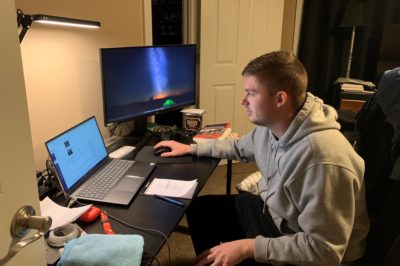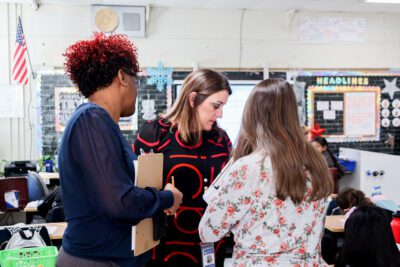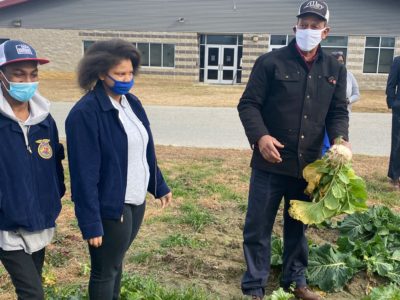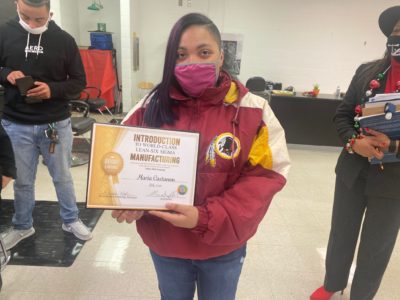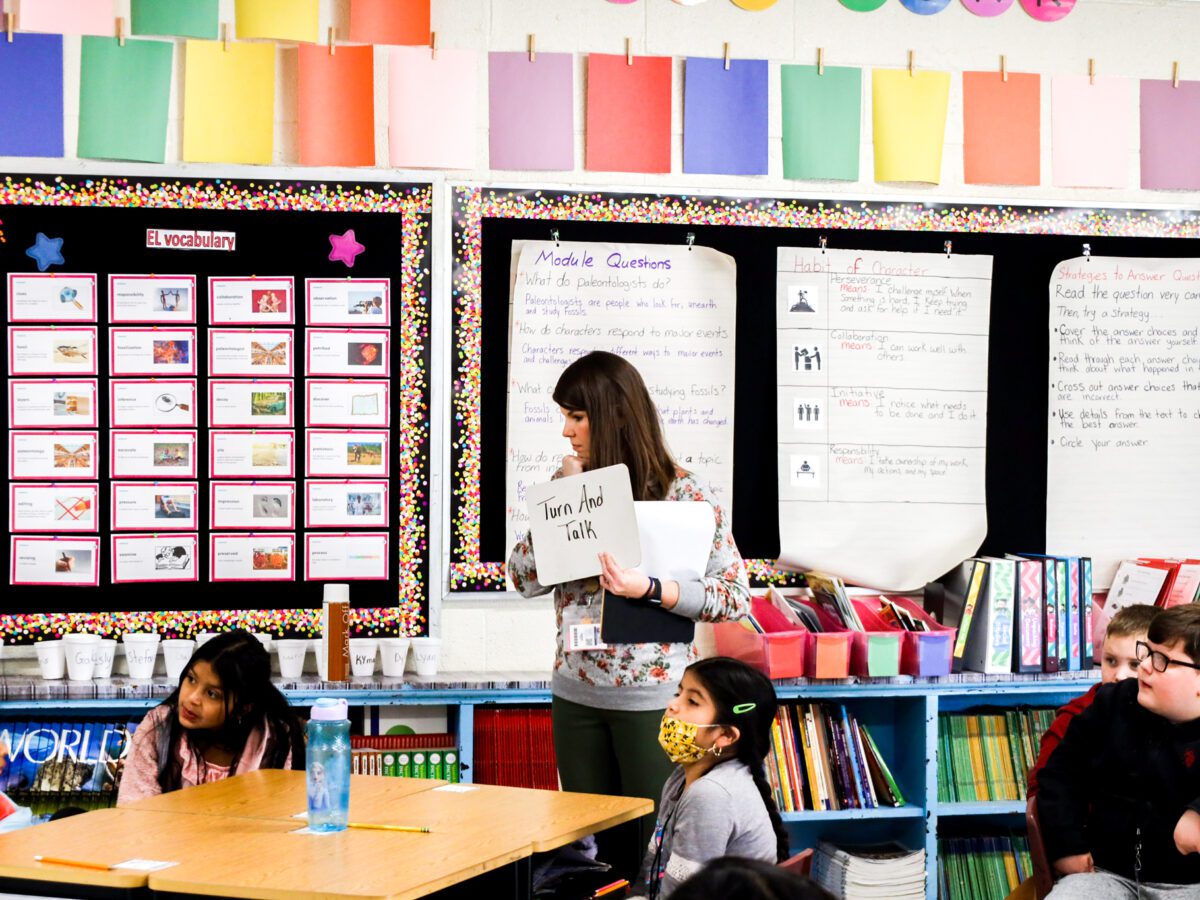

|
|
Angie Mullennix, director of innovative practices and programs at the state Department of Public Instruction (DPI), is always on the hunt for public schools that are solving problems.
This school year in particular, she is looking for creative solutions to education’s biggest challenges: transportation issues, personnel shortages, the ESSER funding cliff, learning acceleration and recovery, and pre-K barriers, to name a few.
“I kind of take it as my responsibility to listen to the needs of the field,” Mullennix said in an interview with EdNC. “What solutions do they need to problems that they have?”
Mullennix locates, researches, and vets policies and practices from North Carolina’s districts and charter schools, then puts them in DPI’s Promising Practices Clearinghouse. It’s a tool to easily locate research-backed efforts that are moving students and schools forward.
“It’s intended to help all the pockets of North Carolina — anybody related to education,” Mullennix said.
She uses the network and expertise of other DPI staff, external organizations, and self-submissions to find best practices across the state. Every practice has at least two sources of supporting research, one based in North Carolina and one national study.
“We’re not just lifting up that this thing is beneficial and here’s why for this district, but also, for the larger audience, research has shown that this works,” she said.
DPI hopes the clearinghouse, now in its second year, can be a tool for district and school leadership, classroom teachers, and other stakeholders looking for evidence-informed approaches: funders, policymakers — even other states. Mullennix said she has been contacted by state officials from Michigan, New Jersey, and Rhode Island to learn more about how to share effective strategies.
Districts and schools are able to submit their practices (whether they are new approaches or have been implemented for years) through this survey or by emailing Mullennix at angie.mullennix@dpi.nc.gov.
You can search the dashboard through “Polaris 2.0 strands,” which are categories of State Superintendent Catherine Truitt’s strategic plan: accountability, competency-based education, district and regional support, human capital, learning recovery, literacy, and student support. You can also search through “Portrait of a Graduate strands,” which are characteristics and skills the state is encouraging public schools to integrate into their work, from the district or charter leadership to the classroom level: adaptability, collaboration, communication, critical thinking, empathy, learner’s mindset, and professional responsibility.
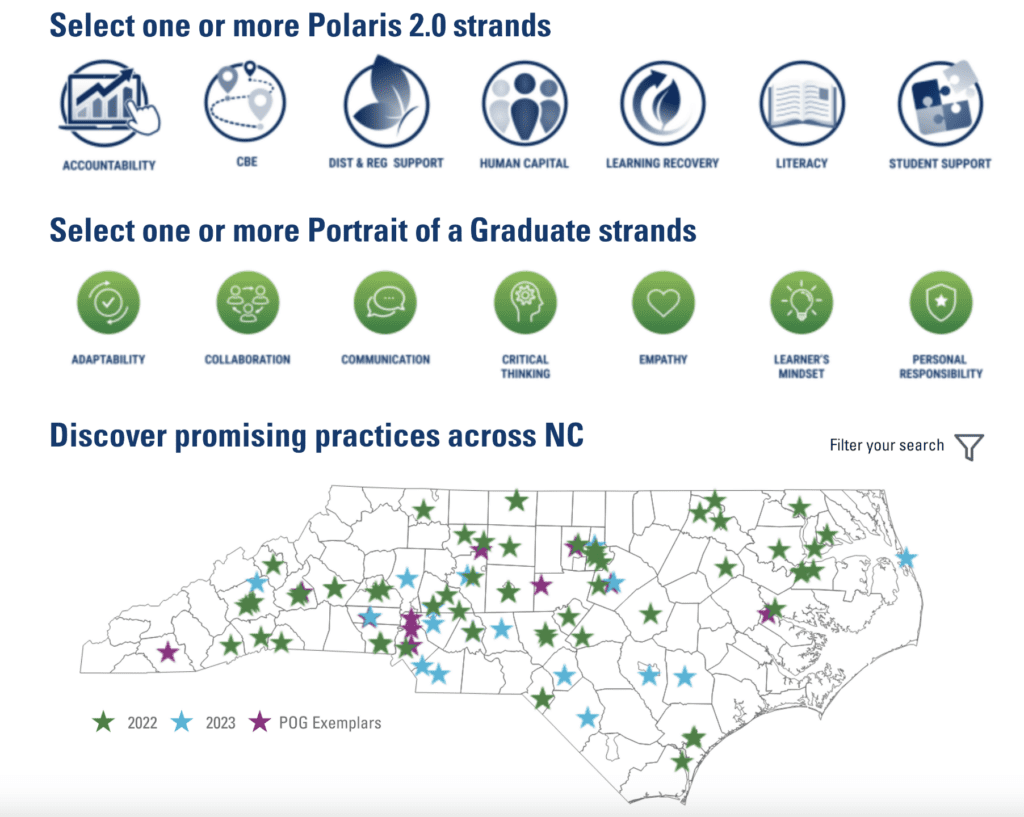

Click on a star for a brief description of the practice, like the one below on Dare County’s teacher housing initiative. Click on the circled “i” for an infographic that dives deeper into the practice and the research backing it.
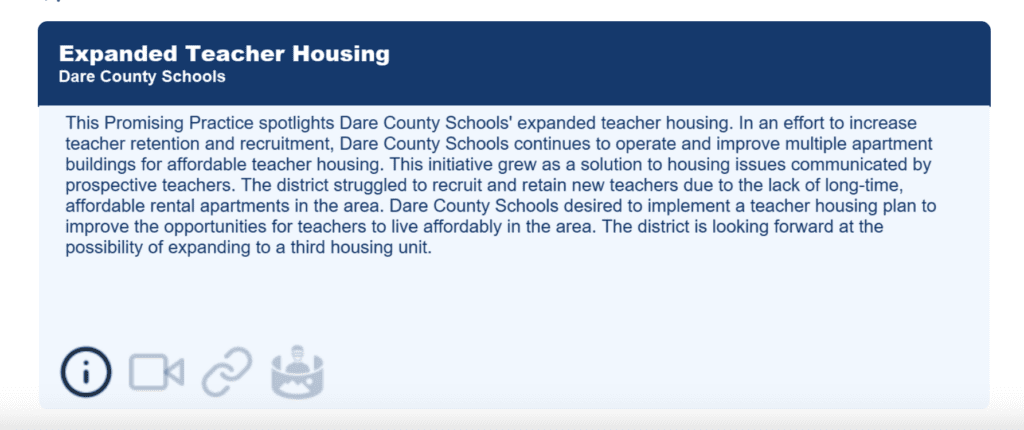

Mullennix shared via email the following practices she’s collected in the past six months as examples she think are especially relevant heading into the school year:
Montgomery County Schools’ innovative funding
Montgomery County Schools uses an innovative funding strategy through which the district partnered with Research Associates prior to the Covid-19 pandemic and has continued that partnership through the inclusion of ESSER funds, and the district will continue this partnership after the funds’ expiration. This approach has resulted in numerous innovative opportunities and partnerships throughout the district.
Grow-your-own teachers in Union County Schools
In an effort to increase recruitment and retention efforts within the district, Union County Public Schools developed TeachUCPS, an innovative initiative designed to provide an effective pathway to teaching for high school students and teacher assistants in the district. This highly collaborative Grow Your Own teacher pipeline-style program helps inform students and teacher assistants about the teaching profession and minimize the barriers to earning credentials and entering the teaching profession.
Union County Schools’ intensive math tutoring
In an effort to improve math proficiency and growth in persistently low-performing schools, the district utilized a school turnaround model. The school turnaround model requires seven strategies working simultaneously: effective teachers, effective leaders, daily intensive tutoring in schools, school culture and climate, increased time in school, differentiated compensation, and wraparound services.
Dare County Schools’ teacher housing
In an effort to increase teacher retention and recruitment, Dare County Schools continues to operate and improve multiple apartment buildings for affordable teacher housing. This initiative grew as a solution to housing issues communicated by prospective teachers. The district struggled to recruit and retain new teachers due to the lack of long-time, affordable rental apartments in the area. Dare County Schools desired to implement a teacher housing plan to improve the opportunities for teachers to live affordably in the area. The district is looking forward at the possibility of expanding to a third housing unit.
Accelerated middle school math in Hoke County Schools
After years of consistent mathematics results on the Math 1 and Math 3 End of Course assessments, coupled with the learning loss from the pandemic, Hoke County Schools’ leadership decided to pivot with their approach to mathematics instruction, exhibiting a great sense of adaptability. In an effort to provide opportunity and access to Math 1 as eighth-grade students, Hoke County Schools developed a phased approach to compacting sixth- and seventh-grade math for sixth-graders, compacting seventh- and eighth-grade math for seventh-graders, and having all eighth-grade students take Math 1. Instead of students taking Math 1 based on their previous EOG score, all students are afforded this opportunity.
Public Schools of Robeson County leverages leadership
This Promising Practice spotlight focuses on the Public Schools of Robeson County’s turnaround approach using Leverage Leadership / RELAY. This pivotal switch to a focus on instructional leadership and coaching, including intensive professional development and an ongoing coaching process, has resulted in greater accountability performance for the school district.



